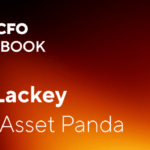How to get the most out of your distributed workforce
Due to increased technological advancements and the advent of the pandemic, many businesses adapted to a distributed or remote work model.
Long Dinh, VP of Finance at Ada – an AI chatbot start-up – finds a distributed workforce, combined with finance automation, allows the business to grow and evolve in the midst of a pandemic.
Recently, we interviewed Long on The CFO Playbook, where he walked us through how he structured his distributed team and how your business can get the most out of a remote work setup.
Create a level playing field
In a remote environment, you need to be inclusive and create an equal playing field for all employees.
Long strives to give every employee an equal opportunity for promotion and advancement in the company, regardless of where they are physically located.
He says:
‘I think in today’s world, many people, when they join a remote company, may fear, “If I’m not close to my manager, will I still have an equal chance of getting a promotion?”’
Distributed environments increase the potential for bias – whether due to location or how often you interact with a particular colleague. In order to combat this, Ada implemented a Digital Bill of Rights where every team member has an equal chance of providing value and contributing to the team regardless of their location.
Long explains:
‘We made a very clear decision at the leadership level that any strategy or critical decision for the company has to be taken digitally, where we have everybody in the virtual room contribute to that decision.’
When you create an equal playing field, you ensure everyone feels valued and respected while increasing motivation within your team.
Build diverse teams
A fully distributed environment makes it easy to find and hire a diverse team of employees.
Long believes having a diverse team is actually one of Ada’s biggest strengths as a company:
‘Having a diverse opinion and diverse team allows us to make better decisions and research supports that. So I encourage other companies to do so as well. Let’s open up the opportunity for everyone to join the company and treat everybody equally.’
When you have a diverse team of employees, you expose your company to opinions from varied backgrounds and experiences. This can help spark creativity and push your team to think differently.
Automate routine tasks
If you can automate data entry and other routine responsibilities, it will give your team more time to work on value-driven projects for the business.
Efficient companies leverage automation to their advantage in order to make the most of their employees’ time and abilities. This is especially important in remote environments where teams are highly specialised.
Long says:
‘We need to move away from data entry and unlock our time to actually review information and provide more value and guidance to the business and be a growth partner to other departments.’
When you implement new systems, Long says to make sure of three things: reliability, scalability, and the ability to automate.
You want to implement tools and systems that provide accurate data, scale with the growth of your business, automate routine tasks, and work cohesively with other systems in place.
This will allow you to reallocate your team’s time towards higher-performing tasks.
Think ahead
The most successful companies think ahead. If you want your company to grow, you need to align your strategy to match future goals versus immediate needs. And that includes the ability to scale a distributed team.
According to Long:
‘It’s all about building the people, systems, and processes in service of allowing the company to grow two years from now. How we can actually build a team and infrastructure where people can make decisions and ensure day-to-day business operations without any disruption.’
When you plan ahead, you circumvent future problems and ensure your company has the best chance to grow and succeed.
Why remote work is here to stay
The pandemic forced many businesses to work remotely, but now investors see the potential for immense growth in digital-first environments. Long says an increasing amount of investors are pouring resources into B2B SaaS companies because of the benefits those businesses are employing toward digital and remote work.
Long also explained the average customer is becoming accustomed to remote options such as digital assistants, chatbots, and more, which increases the interest for distributed companies.
Remote work environments are here to stay, and in order to make the most of it, you need to be mindful of digital bias, build diverse teams, leverage automated systems, and think ahead.
Sign up to The CFO Playbook Newsletter
Get extra insights from the podcast every Tuesday, to help you thrive in your business and career.







